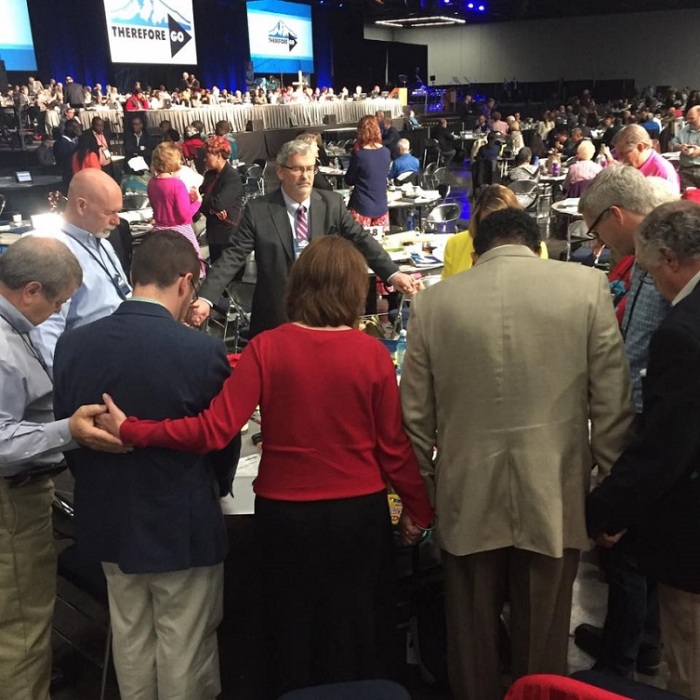UMC traditionalist group shuts down, sees new denomination as fulfillment of work

A theologically traditional group within The United Methodist Church has closed its doors, viewing the recent launch of a new conservative Methodist denomination as the fulfillment of their work.
The Confessing Movement, an unofficial theologically conservative caucus within the UMC that was formed in 1994, announced last year that it was closing down on New Year’s Eve.
Patricia Miller, who served as executive director of the Confessing Movement, told The Christian Post in an interview on Tuesday that they felt their work had been “completed” with the formation of the Global Methodist Church last year.
“We feel that our goal has been accomplished,” Miller said. “We believe, with the launching of the Global Methodist Church, our goal for a faithful denomination has been met.”
“Our goal has been to bring the United Methodist Church into a faithfulness with our doctrine, with our belief about Jesus Christ the Son, Savior and Lord. And so, now, the Global Methodist Church is faithful to that. So, the Global Methodist Church does not need a renewal group.”
Miller also told CP that while the Confessing Movement officially closed on Dec. 31, they are still undertaking measures to finalize the closure, among them “closing bank accounts, statements, and terminating the telephone and all of that.”
“We believe our ministry has been completed with the Global Methodist Church,” she added. “I don’t want it to sound like we’ve given up. I just think we need to be clear that we’ve accomplished a goal that needed to be accomplished.”
Mark Tooley, president of the theologically conservative Institute on Religion & Democracy, told CP that he felt the Movement “rightly recognizes that groups with a specific purpose need not continue indefinitely.”
“The renewal movement is no longer attempting to renew the old denomination but instead is now focused on helping exiting congregations and build a new traditional Methodism for the future,” he continued.
“The Confessing Movement played a vital role in preserving traditional Methodism as a community within the UMC during difficult decades. We’re grateful for their legacy, which will live on through Global Methodism and other outlets.”
John Lomperis of the IRD, who has served as a delegate at UMC General Conference, told CP that he believed it was “a very sad day in the history of our denomination” when the Movement closed down, considering them a “key voice” for biblical orthodoxy within the UMC.
“When so much core doctrine about the Trinity and who Jesus Christ is seemed up for grabs in much of the UMC, the Confessing Movement emerged as a prominent, articulate, influential voice of defending biblical, orthodox, Wesleyan theology,” said Lomperis.
“The Confessing Movement deserves much credit for how in recent years, even many liberal leaders have felt a need to at least pay lip service to respecting orthodox theology on core doctrinal matters.”
Lomperis felt that “with the removal of the Confessing Movement’s restraining influences on the excesses of extreme progressive theology, the legacy of its departure will likely be felt at least as dramatically.”
Over the past several years, the UMC has been embroiled in a divisive internal debate over its official stance labeling homosexuality “incompatible with Christian teaching.”
Although the UMC prohibits the blessing of gay unions and the ordination of noncelibate homosexuals, many within the denomination have refused to follow these official rules.
In May, the Global Methodist Church was launched as a conservative alternative to the UMC, with hundreds of United Methodist congregations deciding to join the new denomination.




























